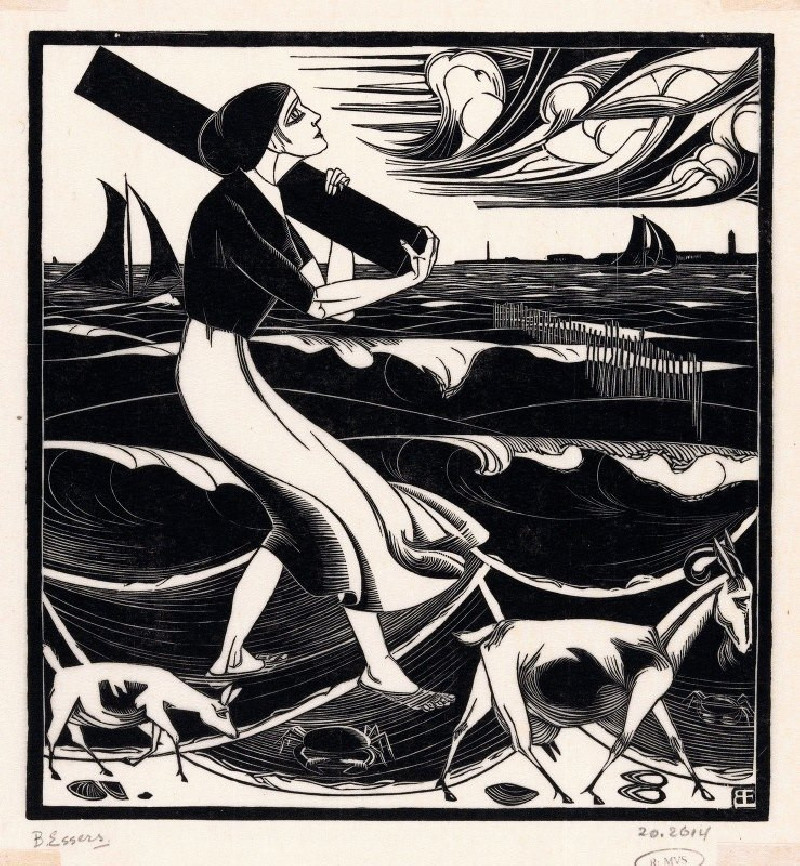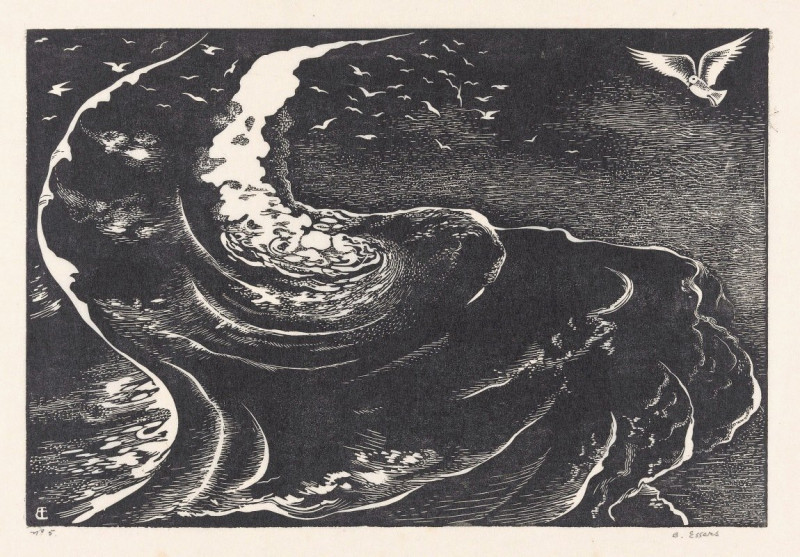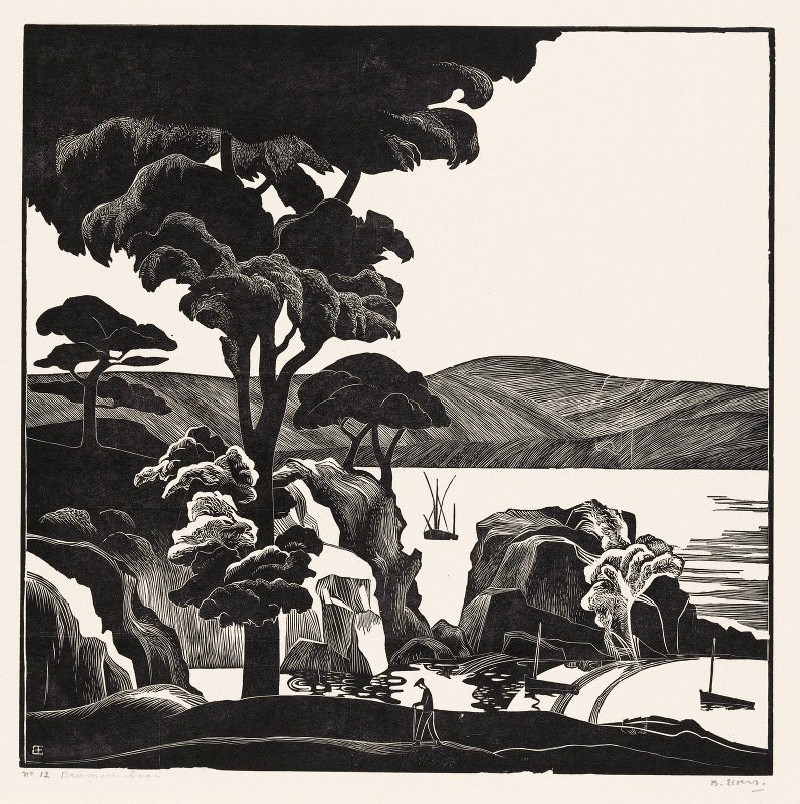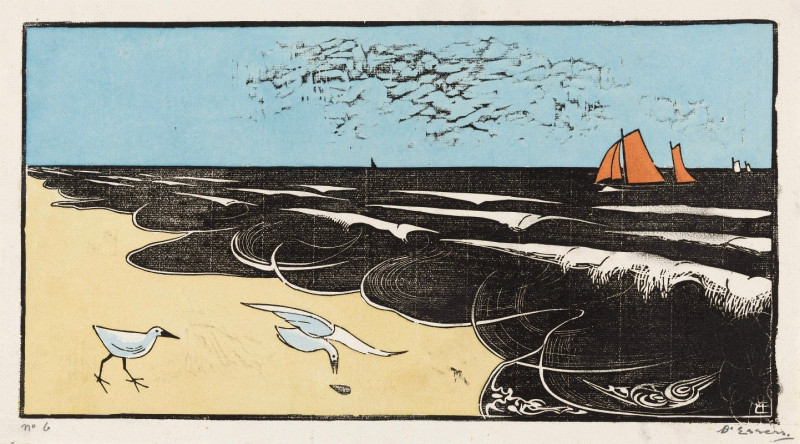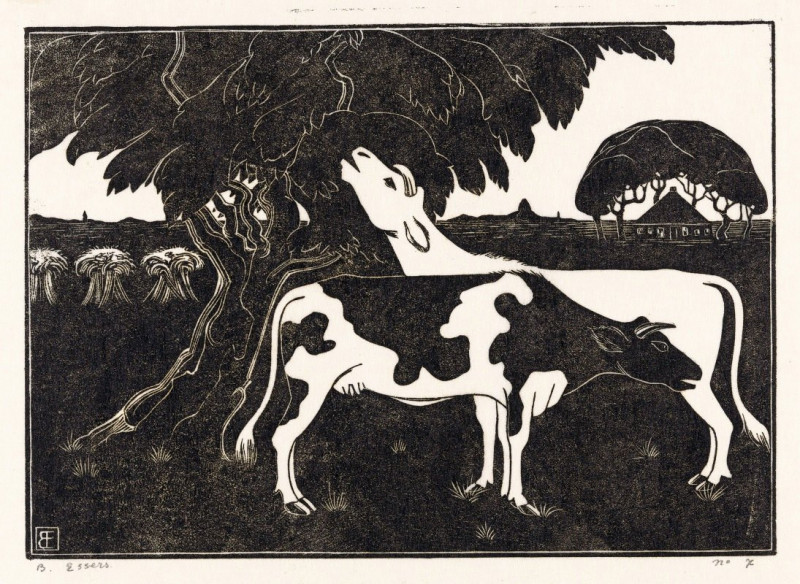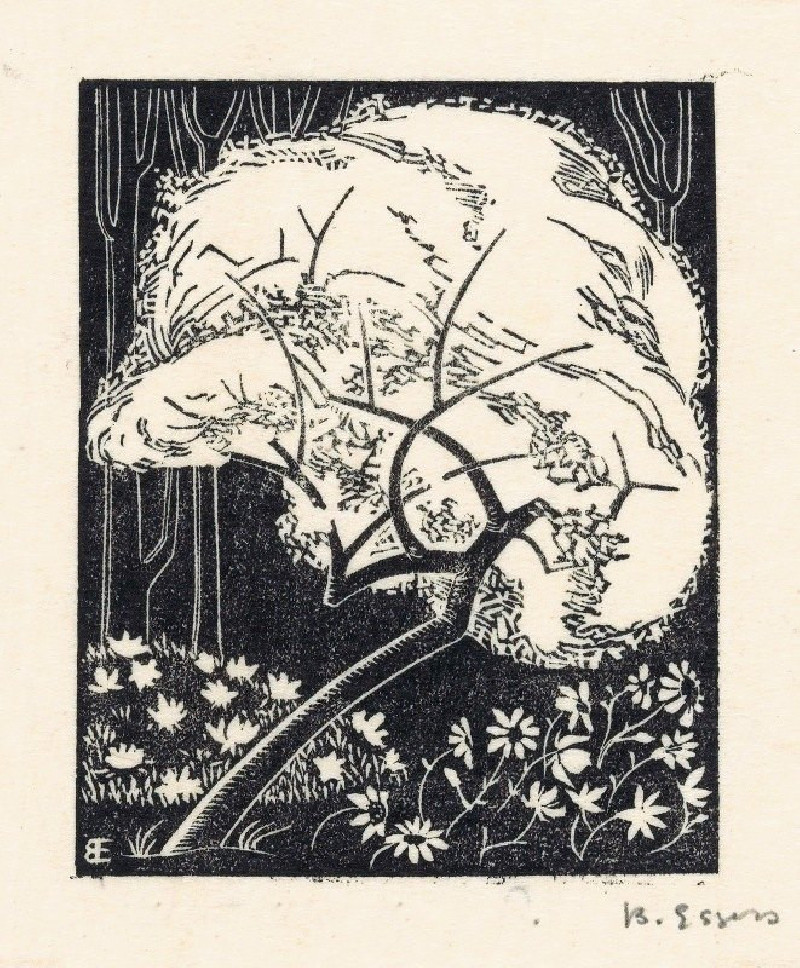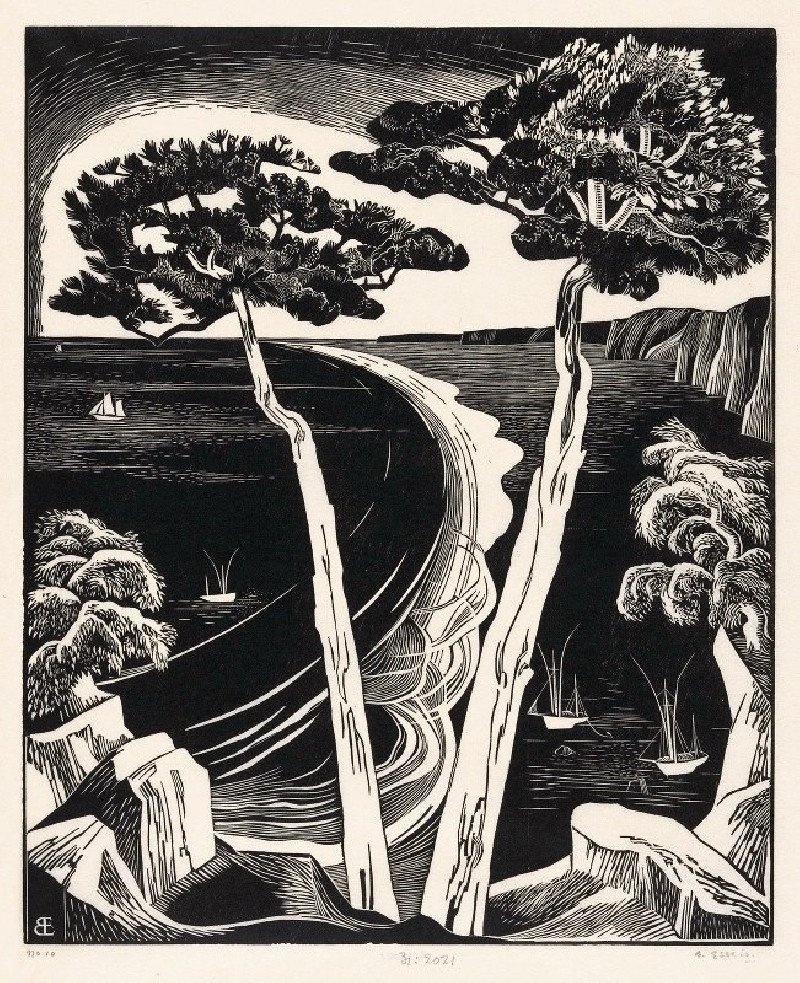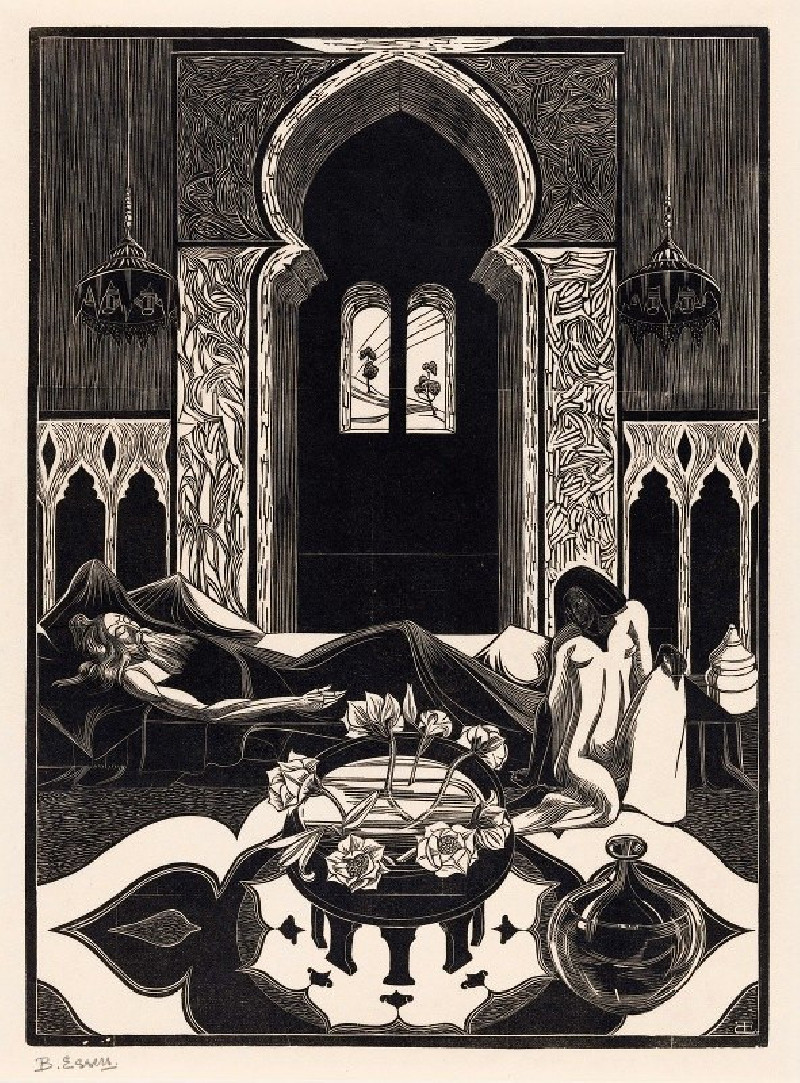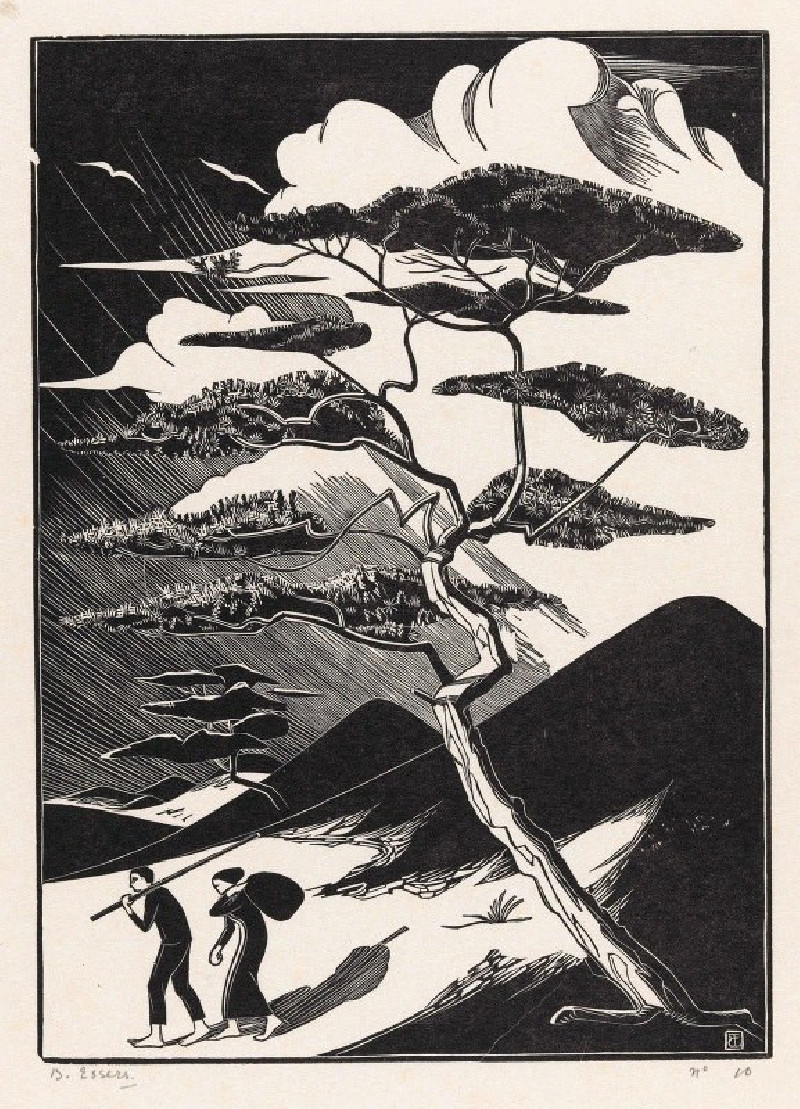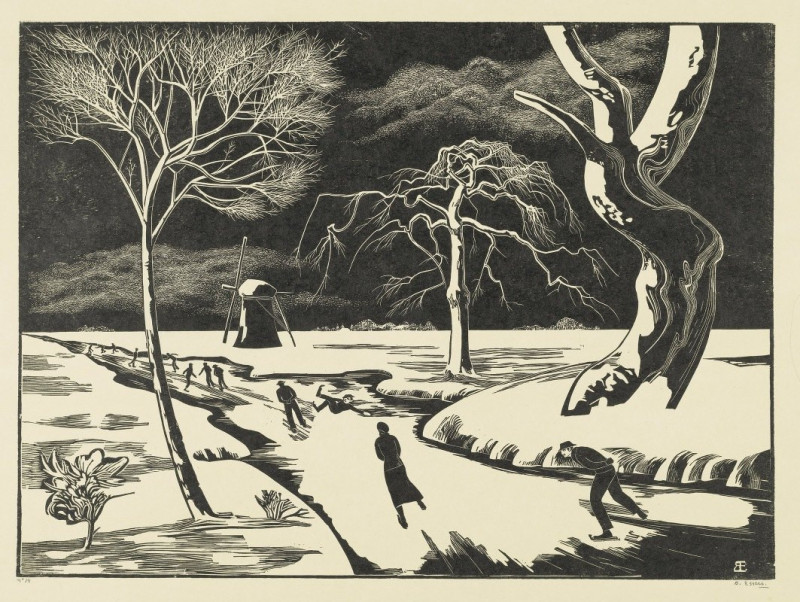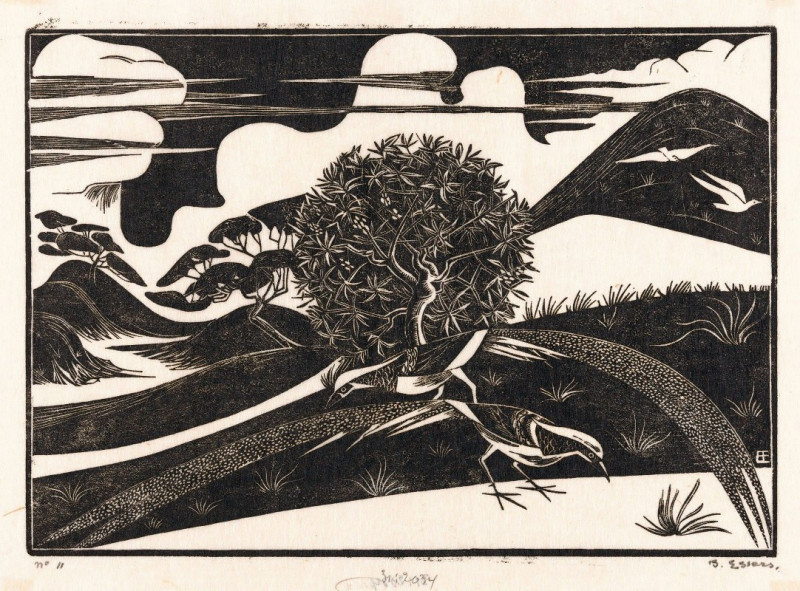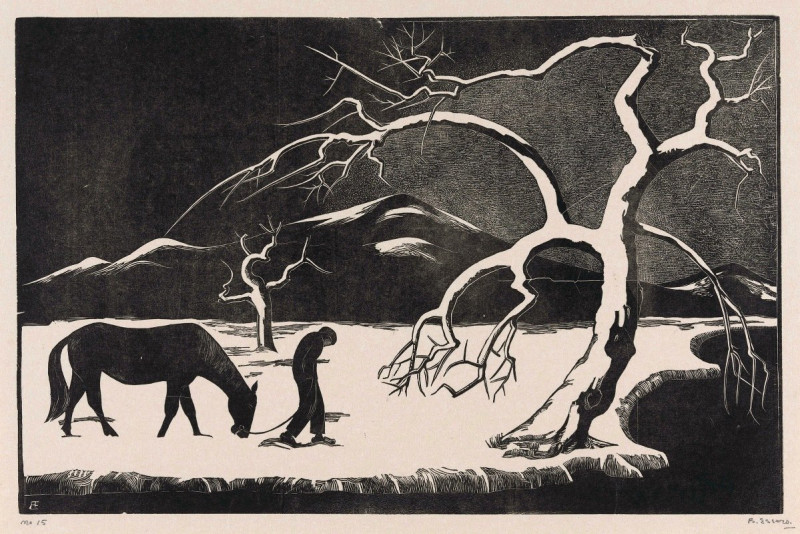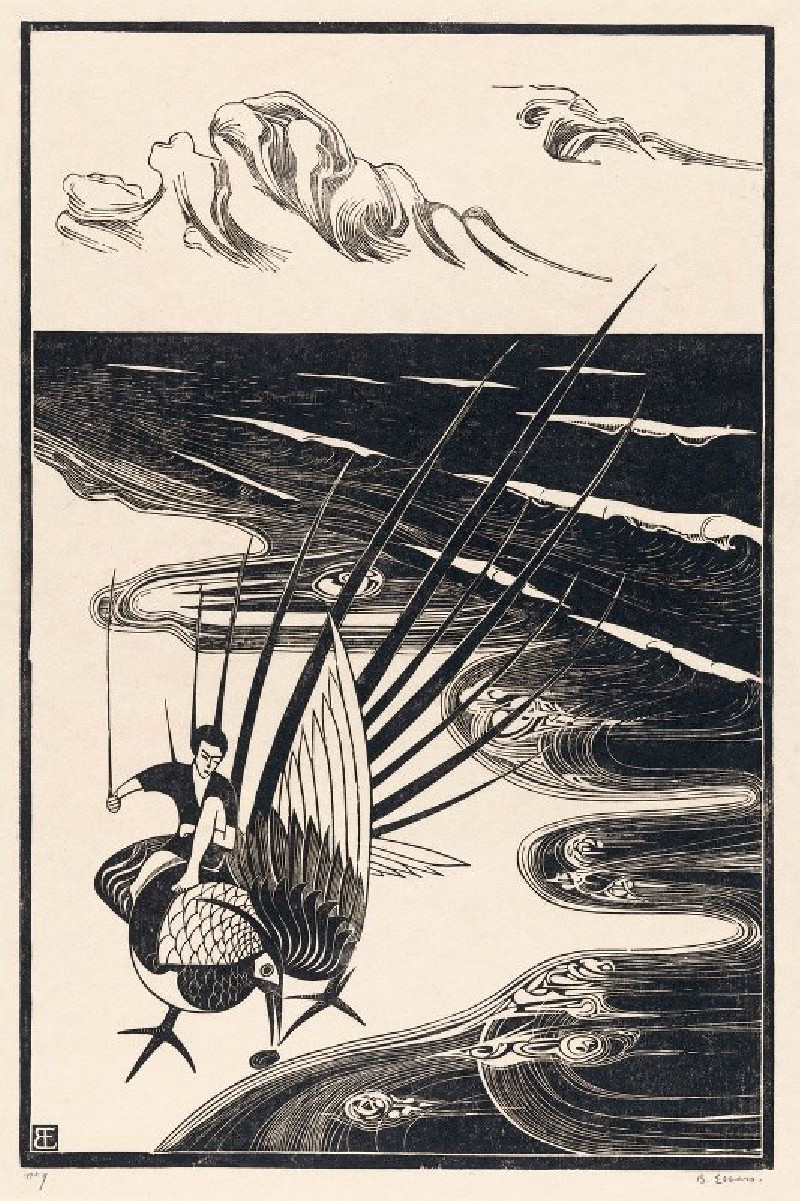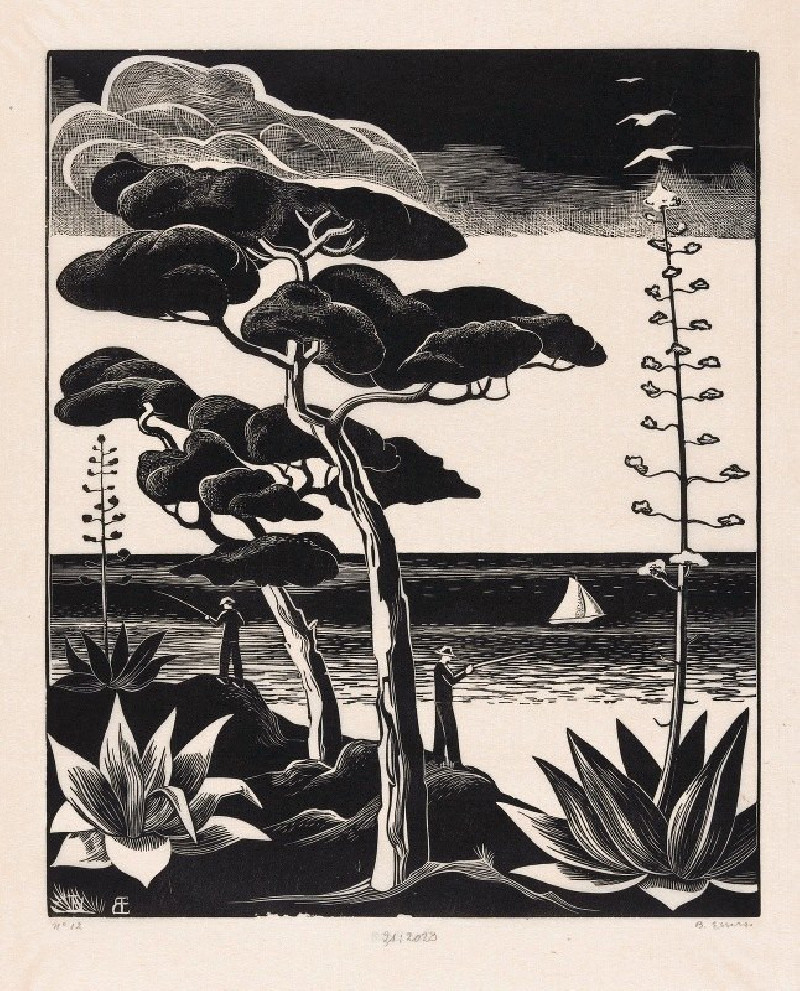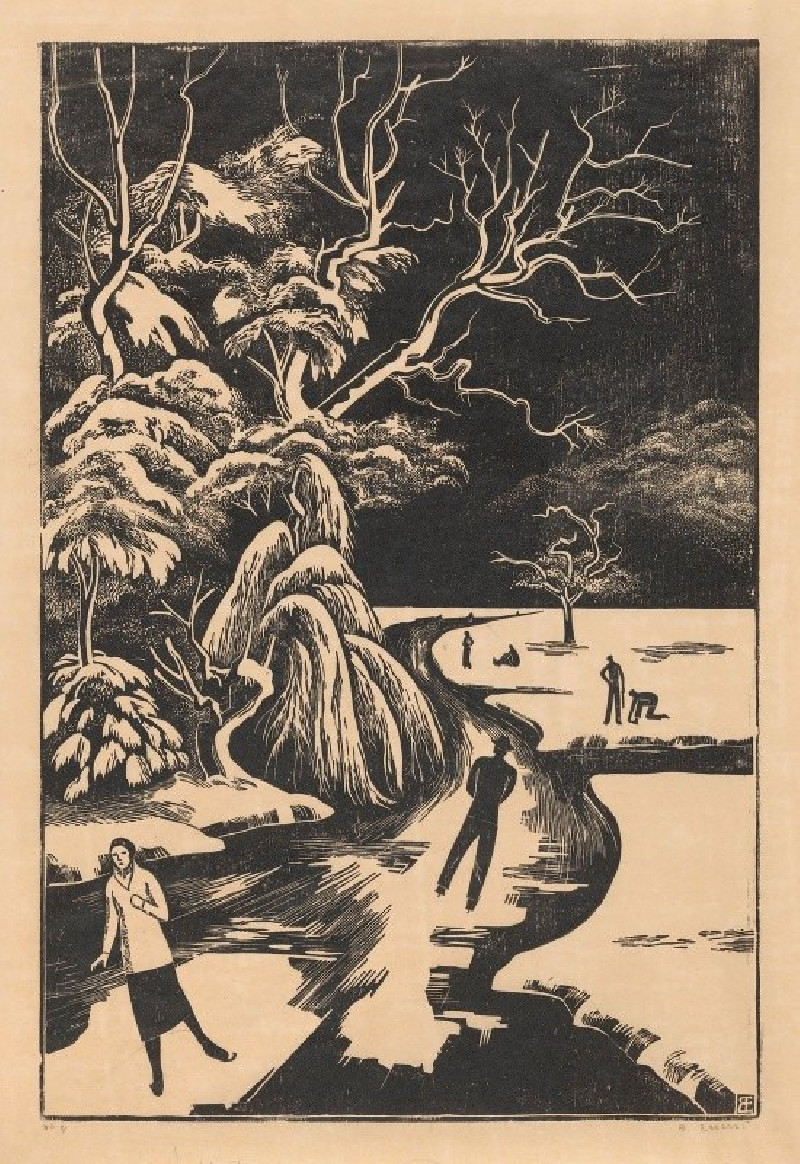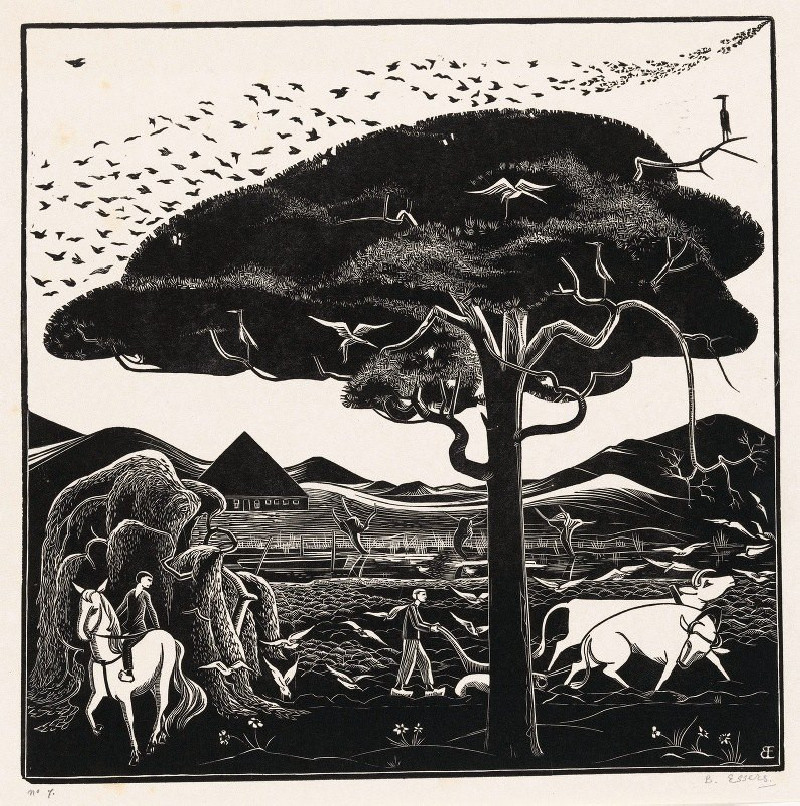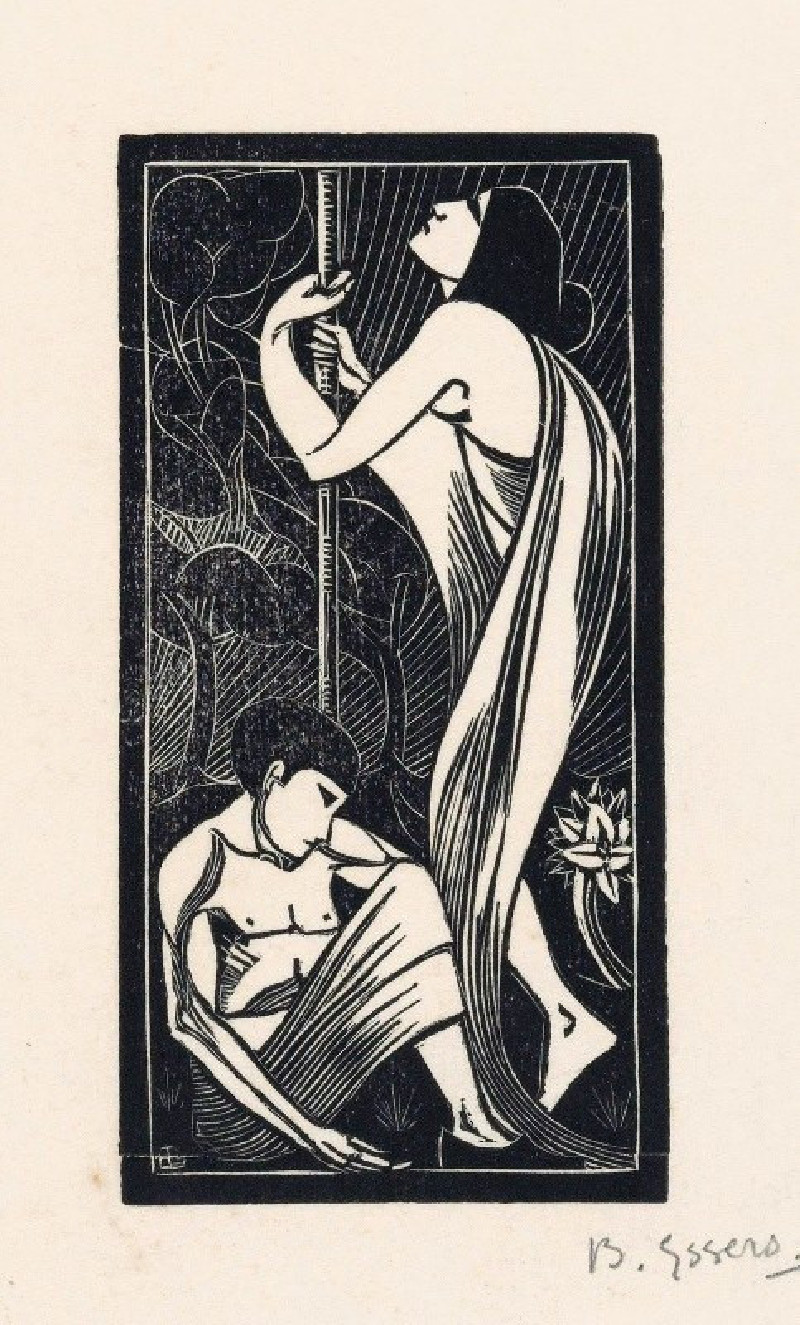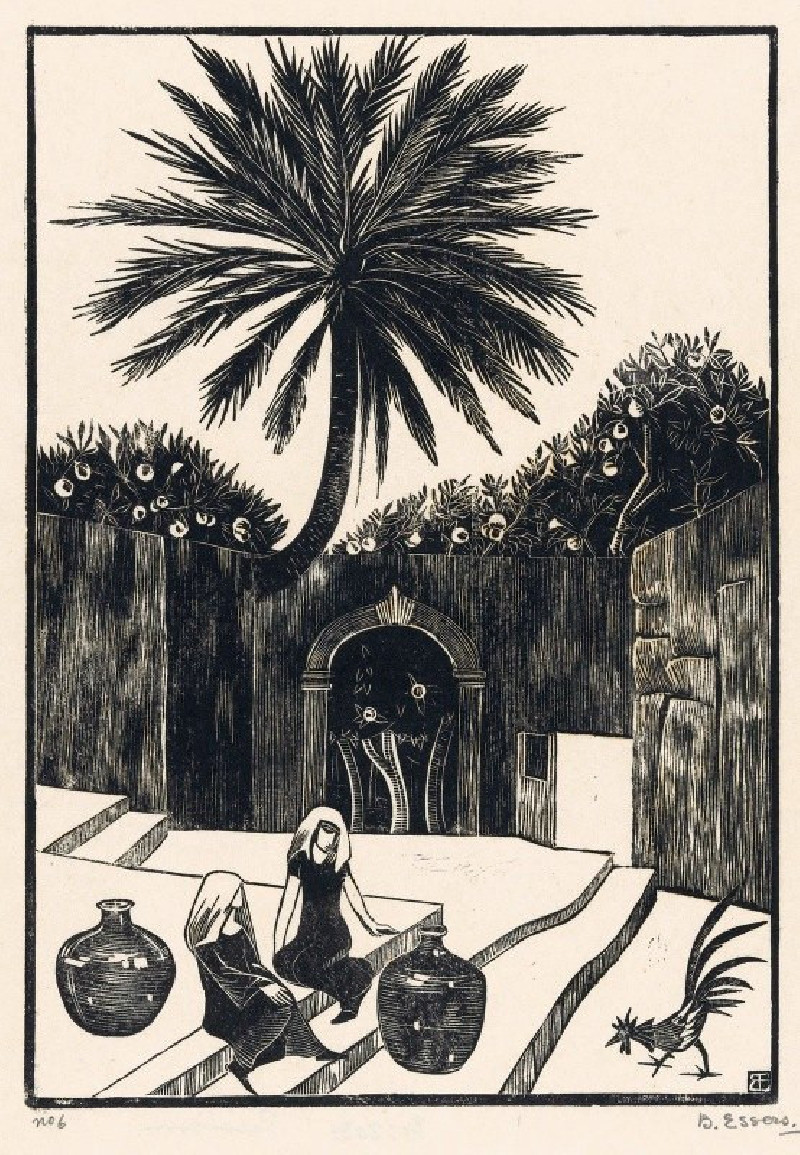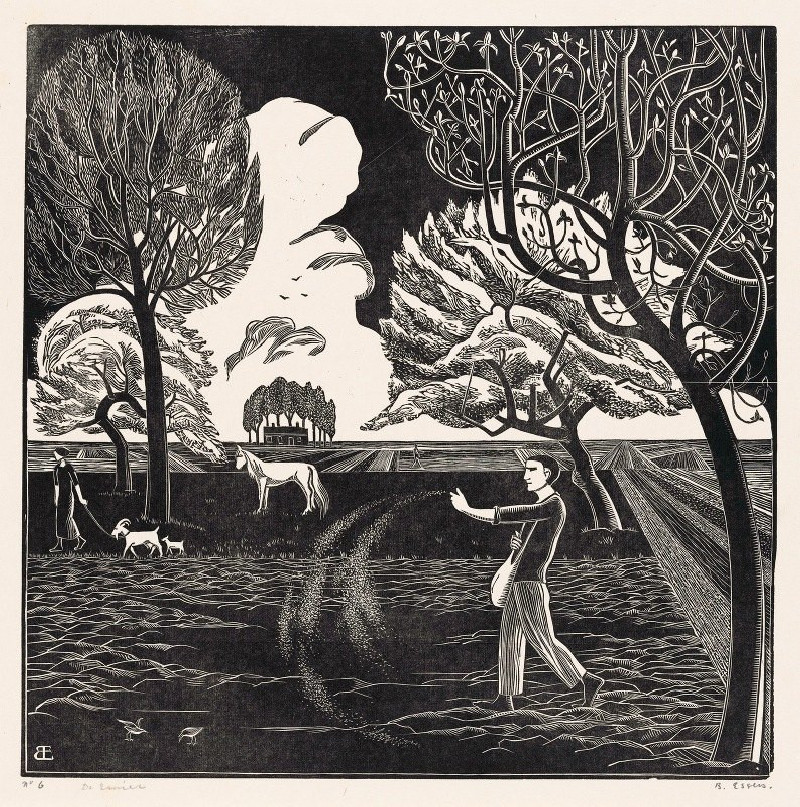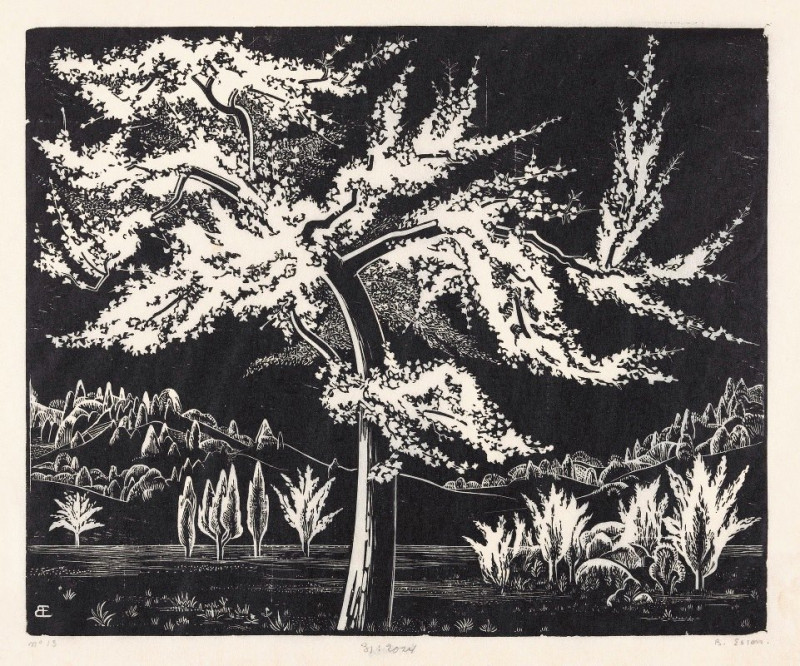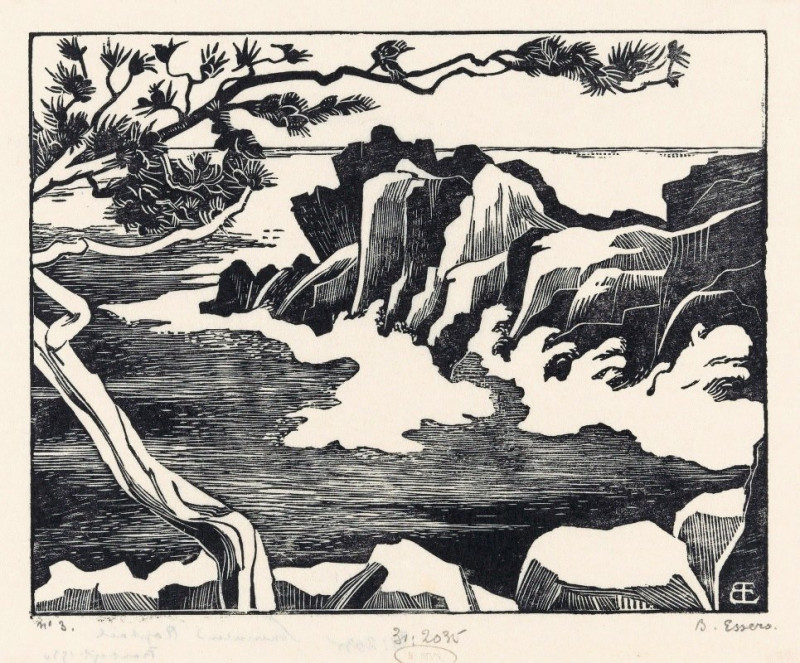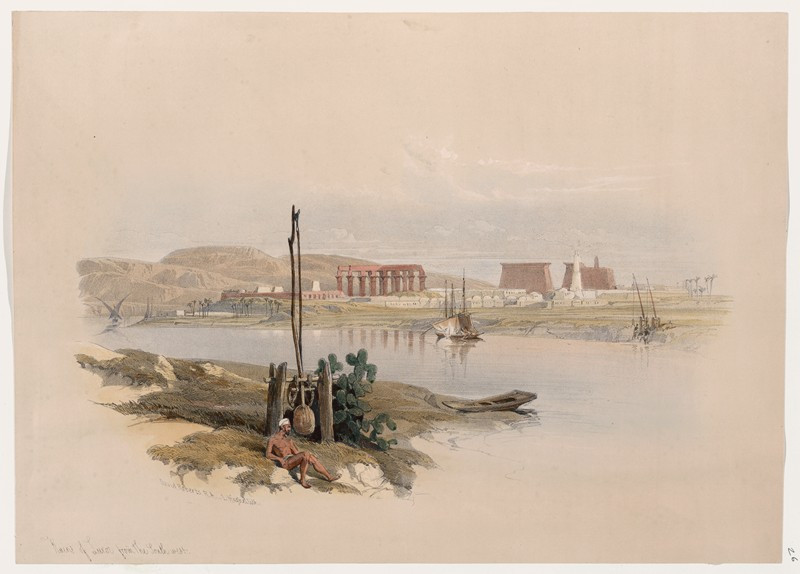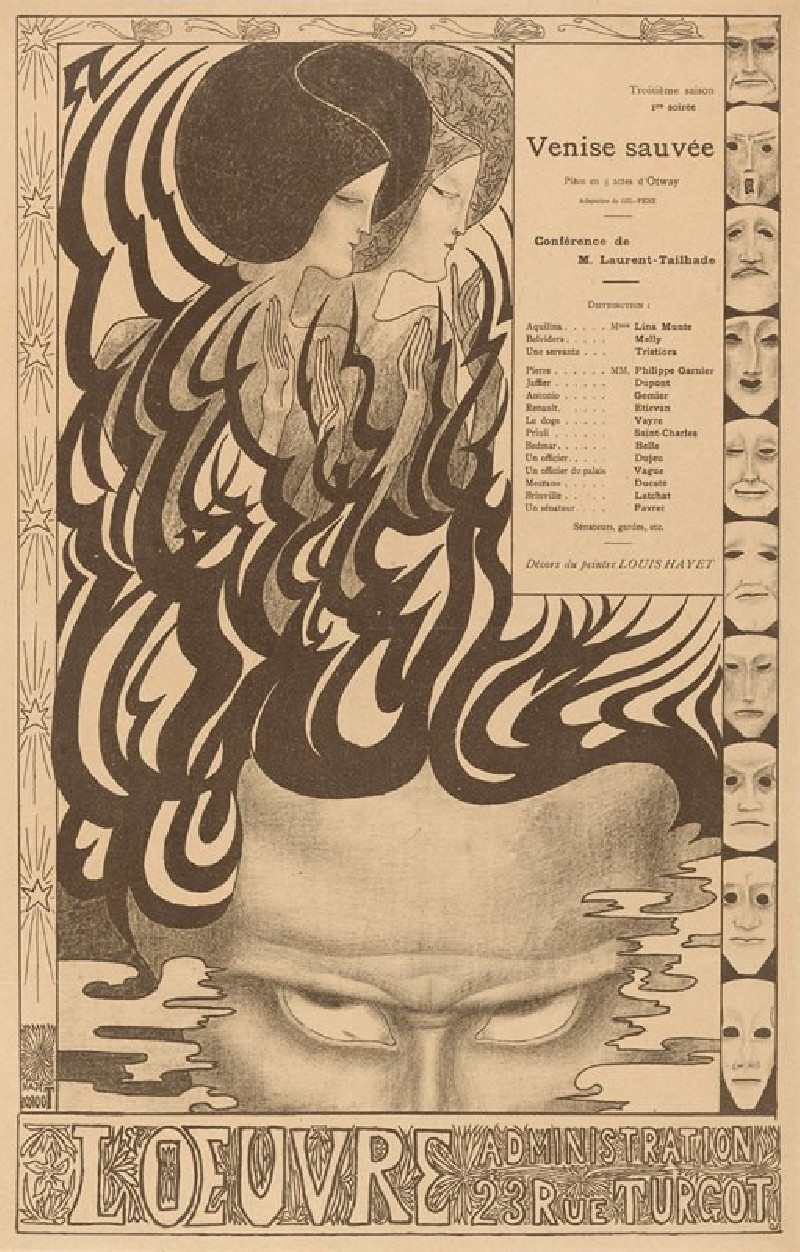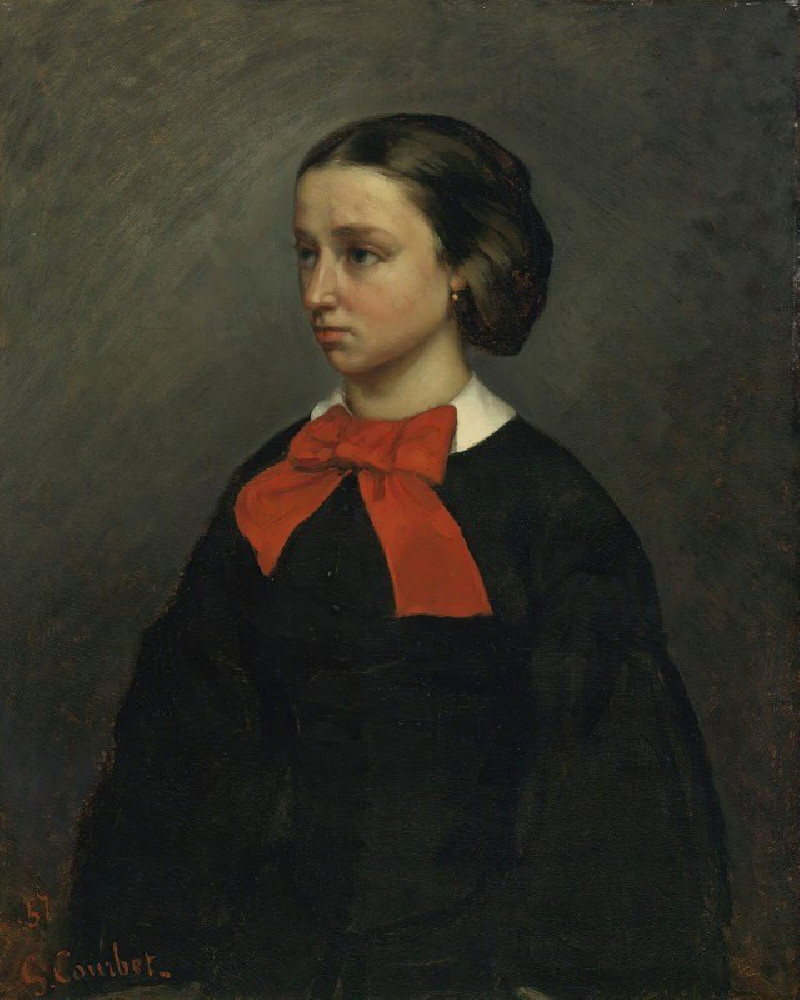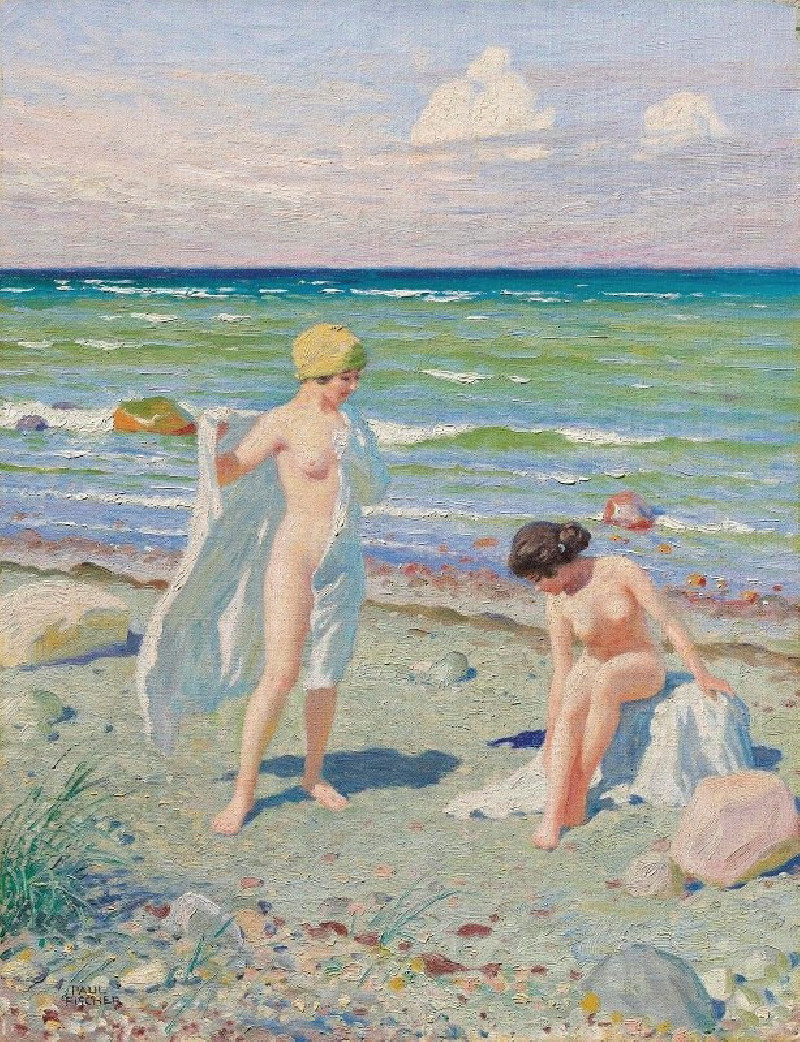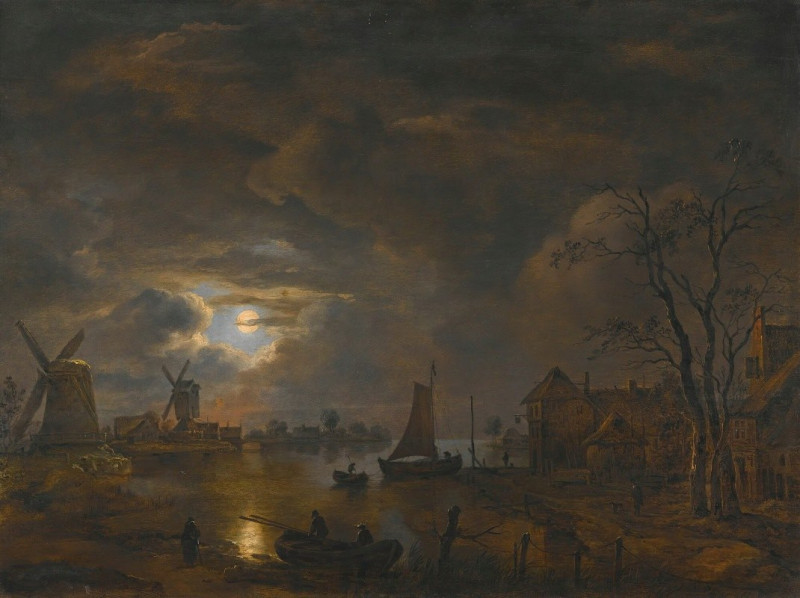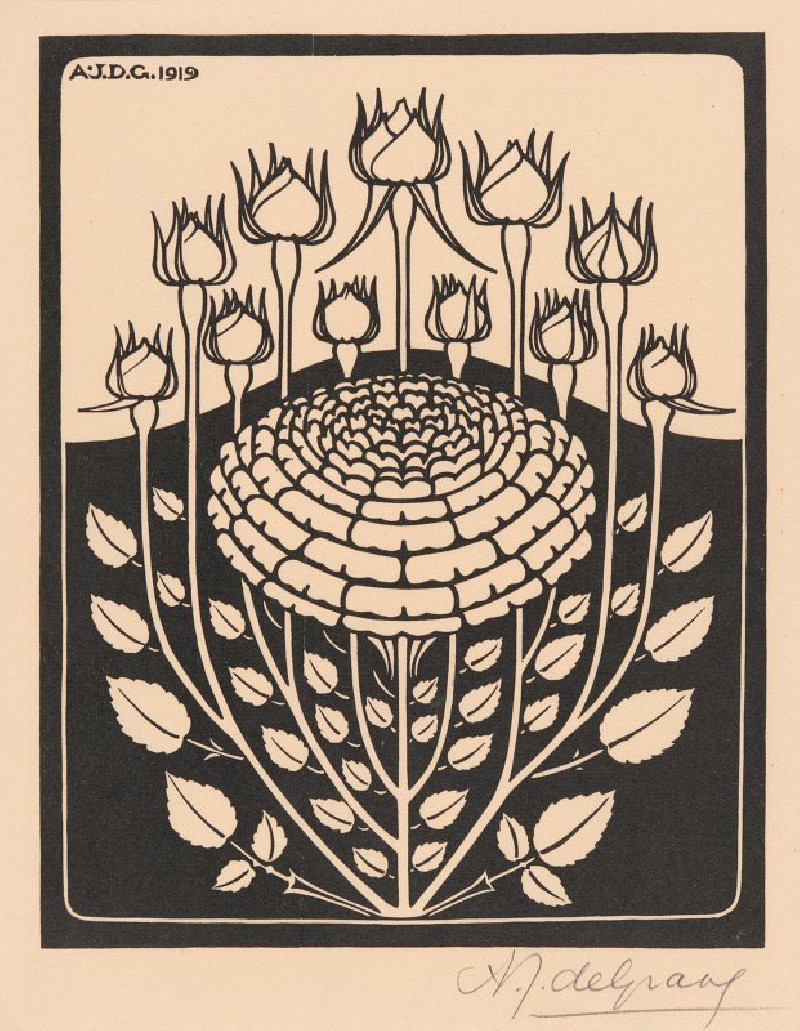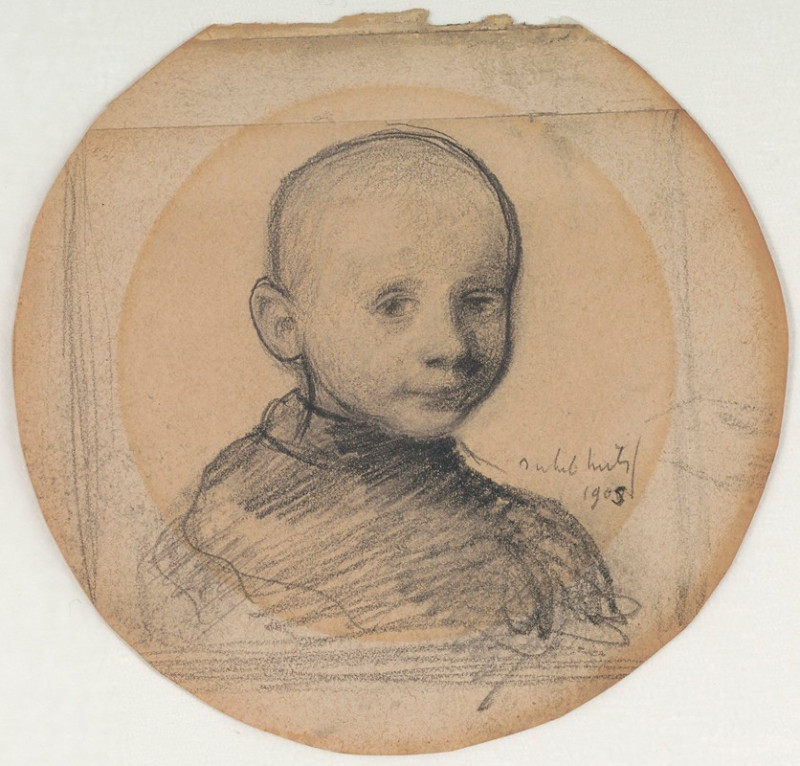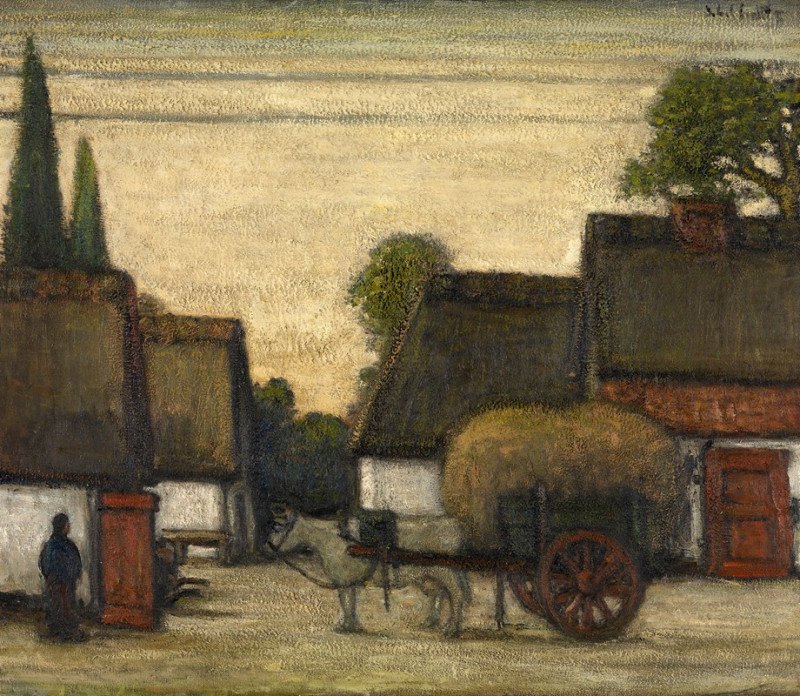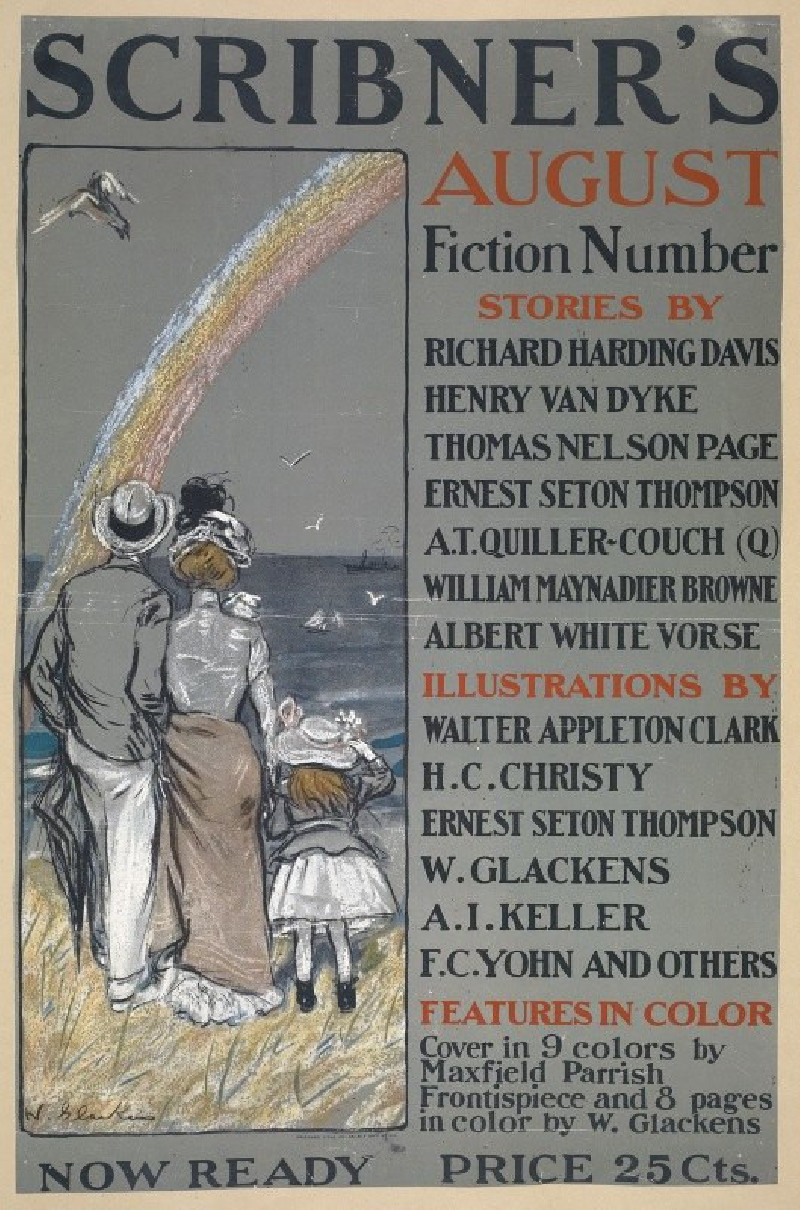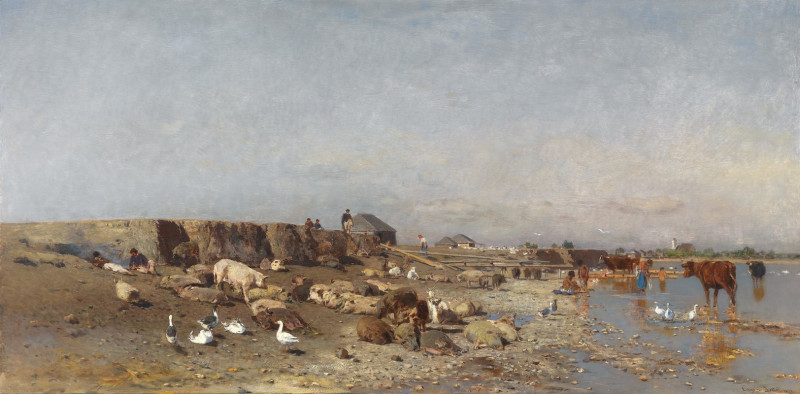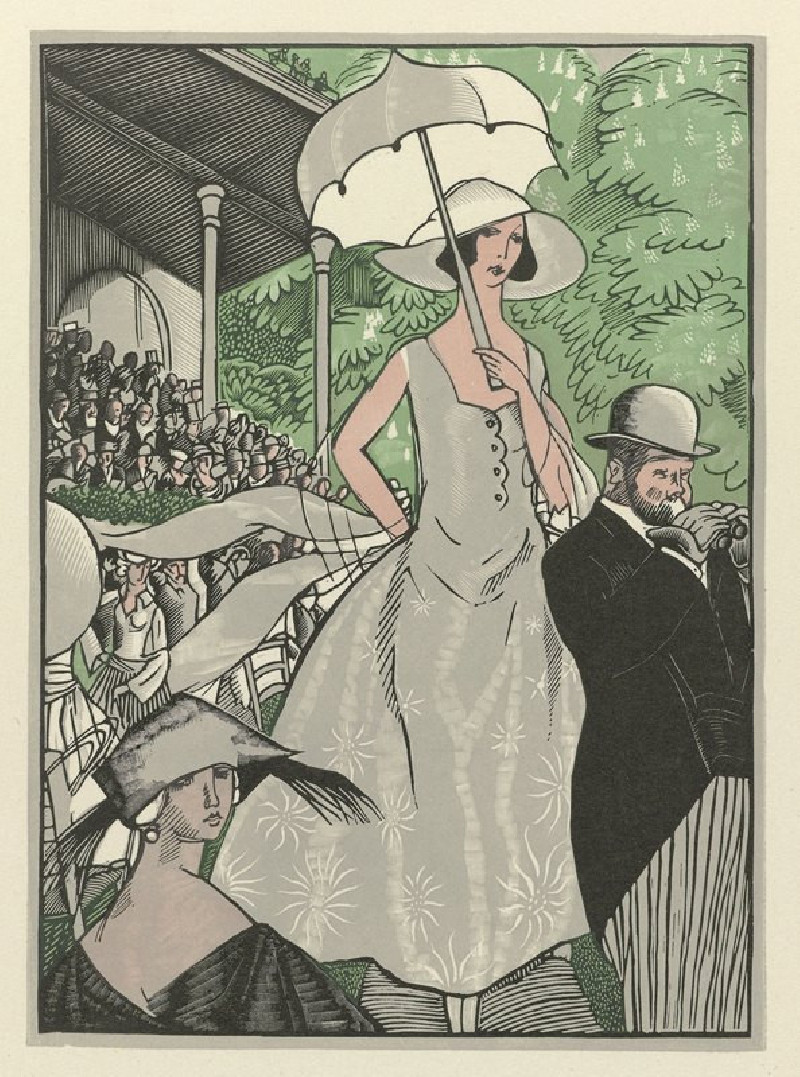Strand (1919)
Technique: Giclée quality print
Recommended by our customers
More about this artwork
Bernard Essers' remarkable woodcut, "Strand" (1919), invites viewers into a compelling, graphically vivid landscape. This artwork, notable for its dynamic composition and expressive linework, depicts a windswept beach scene filled with motion and intrigue. At the forefront, a woman in flowing garb strides purposefully forward, her gaze fixed intently ahead. Her companions, two slender dogs, match her pace, adding to the scene's sense of movement.Above and behind her, the swirling clouds and the exaggerated curling waves underscore the drama of the natural environment, suggesting a strong wind that permeates the scene. The presence of distant sailboats, tilting with the breeze, and a far-off lighthouse echo the nautical theme and highlight the expansiveness of the setting.Essers' use of stark contrasts and the absence of mid-tones intensify the emotional weight of the scene, where every element—from the woman's clenched fists to the taut lines of the leashes—seems charged with energy. "Strand" not only captures a moment of determined forward motion but also conveys a broader narrative of resilience against unseen challenges, characteristic of the post-World War I era from which it emerged.This powerful piece is a testimony to Essers' mastery of the woodcut technique and his ability to evoke deep narrative and emotion through minimalist yet expressive details.
Delivery
Returns
Bernard Essers (11 March 1893 – 13 May 1945) was a Dutch painter. His artistic contributions were showcased in the painting event of the art competition during the 1936 Summer Olympics. Furthermore, Essers' work was featured in the exhibition and sale titled Onze Kunst van Heden (Our Art of Today) held at the Rijksmuseum in Amsterdam in 1939.

